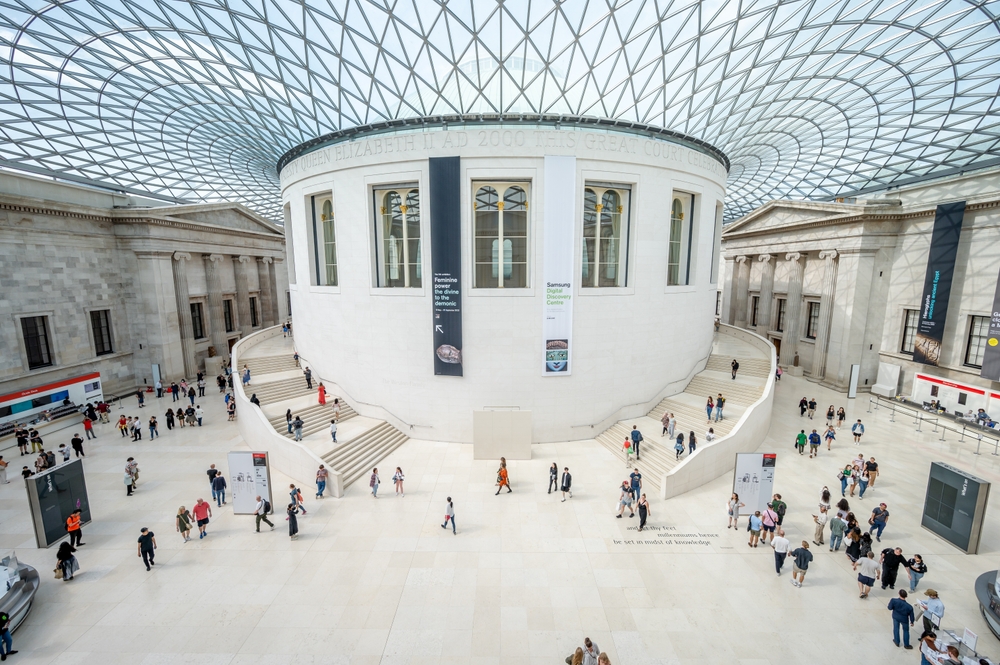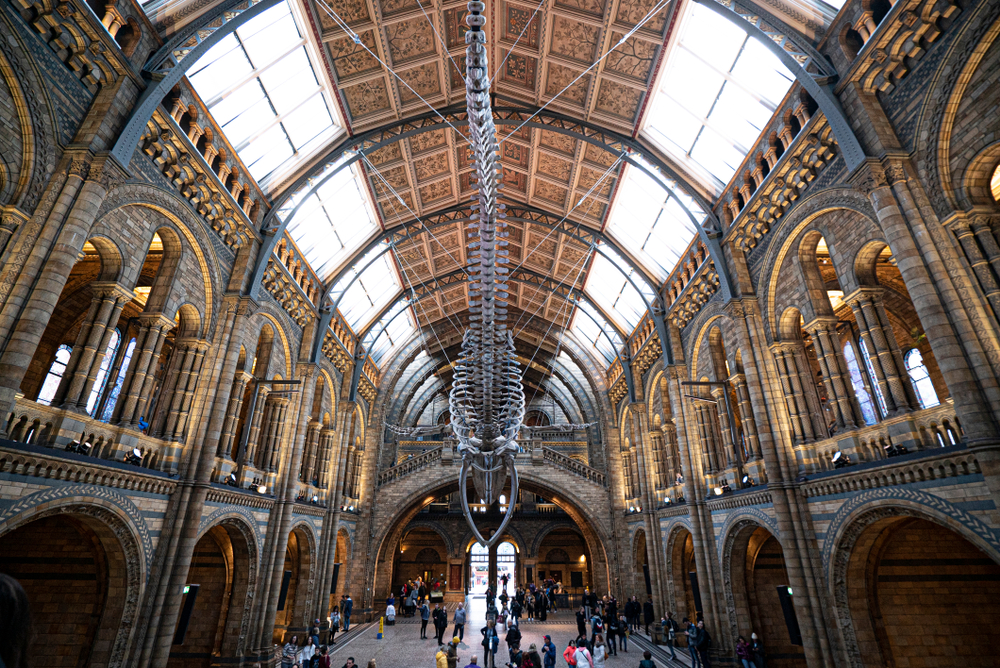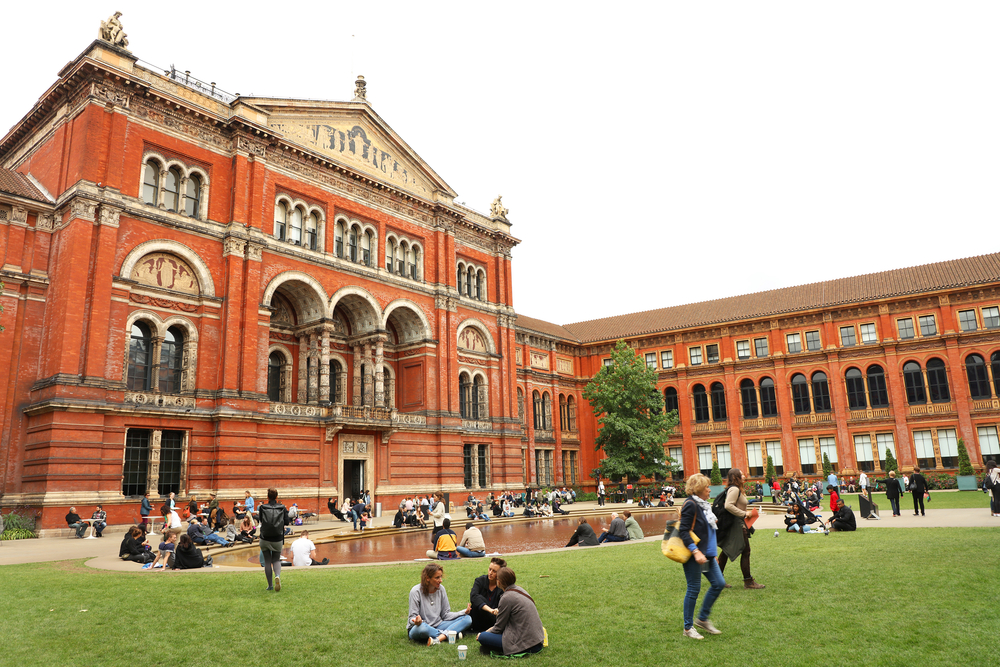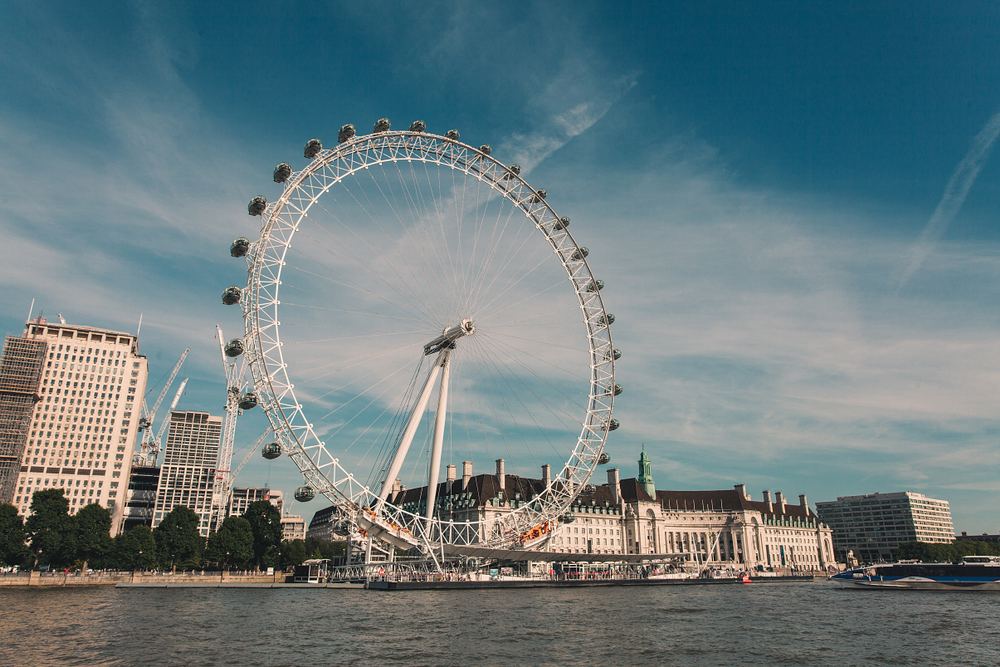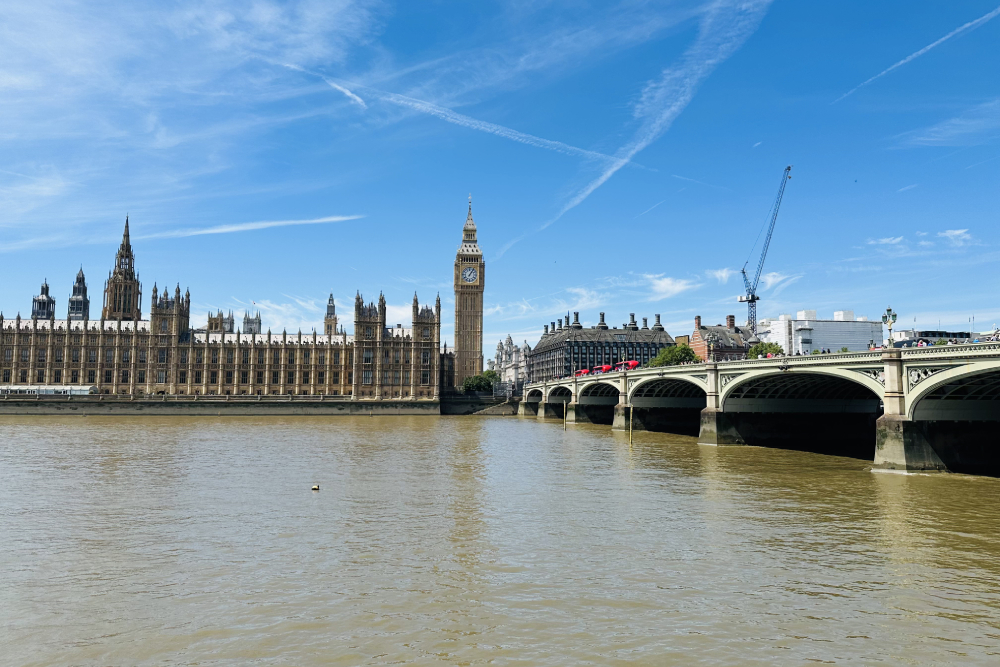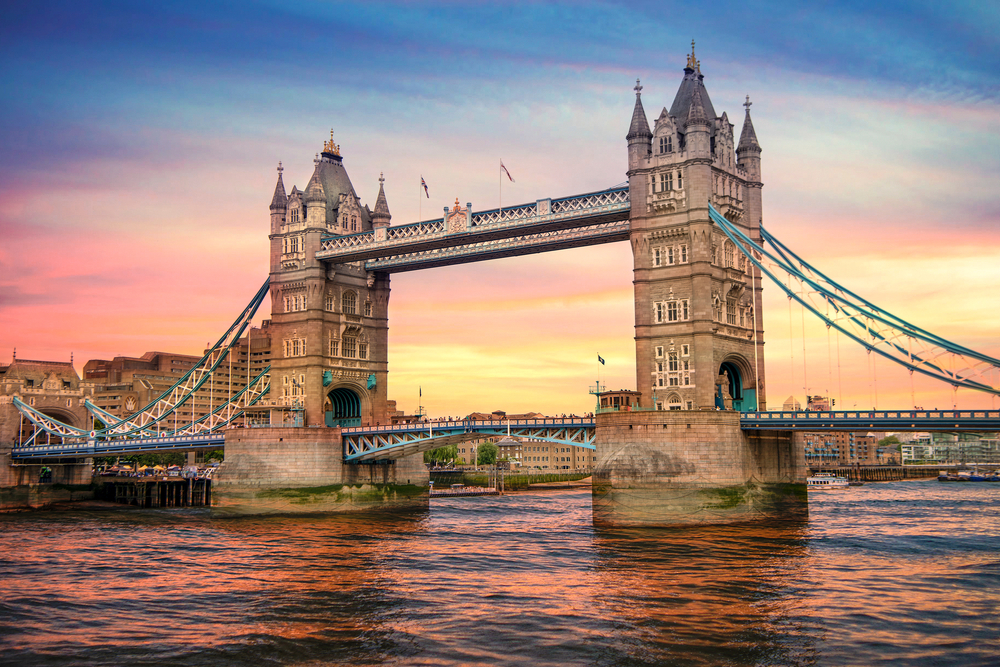Learn English in London
You will be living and learning in one of the most famous cities in the world – voted the best city for students. There is always something remarkable to see or do in London, and here is everything you need to know about living in London!
Arriving to London (Living in London)
There are lots of shops near the school, and Camden is a cosmopolitan place, so you can buy most things you might need. Here are some ideas:
- Money: there are banks and cash machines near the school, but it is a good idea to bring some British pounds (GBP) with you or get them at the airport when you arrive. £50 – £100 should be enough until you can get to a bank. We do not advise you to carry large amounts of money in your pockets or bag.
- Laptop computer: the school and the accommodation we offer have wireless internet. If you bring your laptop, please insure it before you travel.
- Mobile phone: many students buy a “pay as you talk” SIM card for about £5 at one of the mobile shops near the school.
- Electrical adapter: the UK mains electricity is 240V and 50Hz. An adaptor may be useful, but you can buy these near the school too.
- Hairdryer and towel: these are not provided at TopUp Learning London (Tti) accommodation, so it is a good idea to bring one with you. However, you can buy one locally for as little as £12 (for example at the shop called Argos).
- Clothes: the weather is generally mild in the UK, but it is very changeable, so whatever the season, bring clothes for a range of different weather conditions.
- Documents: Print out and bring all the documents the school or your agent gives you, especially accommodation and taxi confirmations.
- Maps: If available, we will give you a map when you arrive, but it’s a good idea to look up a map of the area on http://www.google.co.uk/maps before you come. Input the postcode of the school: NW1 0NE.
- Sport shoes (football boots).
- For summer camp: please check with your group leader for additional items to bring
What is an Oyster Card?
It’s an electronic “smartcard” that can be used on the Tube, trams, buses, DLR, London Overground and some other rail services in London. Using an Oyster Card saves you money and time because it always automatically calculates the cheapest fare for the journeys you make in a day and you just need to top it up with cash or renew your Travelcard/Bus Pass when needed and in advance!
How do I use it?
On the Underground, Overground and DLR stations there are yellow circular readers on top of each ticket barrier that allows entry into the station. Just touch the Oyster Card on the pad and the barrier will open. Don’t forget to touch the yellow reader again on your way out – if you don’t you will be charged a higher fare next time you use your card. On buses, the reader is located near to the driver’s ticket machine and you only have to touch your card once.
How do I get an Oyster Card?
You can get one from most Tube and Overground stations, at London Travel Information Centres, online, Ticket Stops in London or even in your country. See https://account.tfl.gov.uk/oyster for more information.
When you first get your Oyster Card, you will need to pay a £5 deposit.
Pay as you go:
This system allows you to store cash on your card to pay for single journeys as you go. It is the right choice for you if you make a couple of journeys per week. Using this system is always cheaper than buying a “day pass” (paper ticket) for the Underground and buses.
Summer Camp and groups: this will be arranged with Group organisers. Please see what is included in your package
Zone 1 is in the centre and then it expands in concentric circles. The main tourist sights of London are in zone 1 including Big Ben, Piccadilly Circus, Buckingham Palace and Covent Garden.
From airports to central London by public transport (Living in London)
St Pancras International is in Zone 1. It connects to the Piccadilly, Northern, Circle, Metropolitan and Hammersmith and City lines. Any zone 1 accommodation will be no more than 30 minutes by Underground. There are also good bus connections from this station.
Cost for one journey within zone 1:
- by bus: £1.50 with an Oyster Card/Contactless
- by tube: £2.40 with an Oyster Card or £4.90 cash fare
What is Oyster?
It’s an electronic “smartcard” that replaces paper tickets and can be used on the Tube, trams, buses, DLR, London Overground and some other rail services in London. Using an Oyster Card saves you money and time because it always automatically calculates the cheapest fare for the journeys you make in a day. You just need to top it up with cash or renew your Travelcard/Bus Pass when needed and in advance!
How do I use it?
On the Underground, Overground and DLR stations there are yellow circular readers on top of each ticket barrier that allows entry into the station. Just touch the Oyster Card on the pad and the barrier will open. Don’t forget to touch the yellow reader again on your way out – if you don’t you will be charged a higher fare next time you use your card. On buses, the reader is located near to the driver’s ticket machine and you only have to touch your card once.
How do I get an Oyster Card?
You can get one from most Tube and Overground stations, at London Travel Information Centres, on-line, Ticket Stops in London or even in your country. See https://account.tfl.gov.uk/oyster for more information. When you first get your Oyster Card, you will need to pay a refundable £5 deposit.
There are several options for your Oystercard travel – see below:
Pay as you go:
This system allows you to store cash on your card to pay for single journeys as you go. It is the right choice for you if you make a couple of journeys per week. Using this system is always cheaper than buying a “day pass” (paper ticket) for the Underground and buses.
Travelcards (season tickets):
Ideal for those who need to travel every day. You can store 7-day, monthly or longer period Travelcards and Bus Passes on your Oyster Card. Travelcards are valid for travel on the Tube, Docklands Light Railway, London Overground, buses and National Rail. Your Travelcard must be valid for all the zones you travel through.
Bus Passes:
These allow you to travel in the entire London bus network as many times as you wish for the period your Pass is valid for. You can buy them to put on your Oyster Card at tube stations.
Any Travelcard automatically includes a Bus Pass that is valid on the buses in all zones. For example, if you get zones 1&2 Travelcard you can travel freely on the Tube within zones 1 and 2, but you can also take the bus freely in any zone up to zone 6 without additional payment.
Zone 1 is in the centre and then it expands in concentric circles. The main tourist sights of London are in zone 1 including Big Ben, Piccadilly Circus, Buckingham Palace and Covent Garden.
By Stansted Express (living in London)
This is a fast and convenient way to travel between Stansted Airport and central London. Trains arrive to Liverpool Street Station, zone 1, with an average journey time of 45 minutes. Buy tickets online at a discount at www.stanstedexpress.com or at the airport. At Liverpool Street Station you can join the Underground system the Circle, Central, Hammersmith and City or Metropolitan lines. Stansted Express ticket prices:
Single: £16.60
Return: £26.00
By coach (Living in London)
National Express connects Stansted Airport direct with London Golders Green (Northern line on the Underground) and several stops in Central London ending at Victoria Coach Station, zone 1 which connects onto the Victoria, Circle, and district Underground lines. You can buy tickets online at www.nationalexpress.co.uk or at the National Express booth at the airport.
National Express ticket prices:
Single: £10.00
Return: £18.00
By train (living in London)
This is the fastest way from Luton Airport to central London. The journey takes less than 50 minutes with East Midlands Trains company (www.eastmidlandstrains.co.uk) and about 1 hour with Thameslink (www.thameslinkrailway.com/). Both companies offer regular services from the airport to St. Pancras International Stations.
Train ticket price:
Single: £15.70
Return: £27.50
By coach (living in London)
Travelling by bus or coach to and from London Luton Airport could not be easier. There are three companies which run 24-hours a day between the airport and central London. To get the best fares book your tickets online at easyBus (www.easybus.co.uk), Greenline (www.greenline.co.uk) or National Express (www.nationalexpress.com).
Single: £5-£12
Return: £10-£24
By train (living in London0
Southern railway company operates a train between Gatwick Airport and London Victoria Station with trains departing every 15 minutes and a journey of only 35 minutes. Victoria Station connects to the Circle, District and Victoria Underground lines. You can buy tickets online from www.southernrailway.com or at the train ticket desk located outside the arrivals area.
Train ticket price:
Single: £12.70/£15.70
Return: £24.00/£30.80
There is also an express train called Gatwick Express (www.gatwickexpress.com), which is faster:
Single: £19.80
Return: £39.60
By coach (living in London)
National Express connects Gatwick Airport direct with several stops in Central London ending at Victoria Coach Station, zone 1 which connects onto the Victoria, Circle, and district Underground lines. You can buy tickets online at www.nationalexpress.co.uk or at the National Express booth at the airport.
National Express ticket prices:
Single: £10.00
Return: £20.70
Victoria Coach Station is just a few minutes’ walk from Victoria Underground Station, where you can connect to the Victoria, Circle and District Underground lines.
Cost:
£2.90 with an Oyster Card / Contactless
£4.90 cash fare
Useful telephone numbers and addresses (Living in London)
Cally Swimming Pool | 020 7278 4676 | 229 | Caledonian Road, Islington N1 0NH |
Fitness First Camden | 0844 5712833 | 128 | Albert Street, NW1 7NE |
Soho Gyms | 020 7482 4524 | 193 Camden High Street, NW1 7JY | |
Islington Boat Club | 020 7253 0778 | 16-34 Graham street, N1 8JX | |
Islington Tennis Centre | 020 7700 1370 | Market Road, N7 9LP | |
Kentish Town Sports Centre | 020 7974 7000 | Grafton Road NW5 3DU | |
Skateboarding and Rollerblading | 020 7974 1693 | 212 | Camden Rd, London NW1 9HG |
Sobell Leisure Centre | 020 7609 2166 | Hornsey Road, N7 7NY | |
The Circus Space | 020 7613 4141
| Coronet Street, Old Street, N1 6HD
| |
Pure Gym | 193-199 Camden High St, London NW1 7BT | ||
Country: | Telephone: | Address: | |
Algeria | 020 7299 7077 | 1, 3 Riding House Street, London W1W 7DR | |
Angola | 020 7291 8700 | 46 | Bedford Square, London WC1B 3DP |
Argentina | 020 7318 1300 | 65 | Brook Street, London, W1K 4AH |
Austria | 020 7344 3250 | 18 Belgrave Mews West, London, SW1X 8HU | |
Bolivia | 020 7235 4248 | 106 Eaton Square, London, SW1W 9AD | |
Brazil | 020 7747 4500 | 16 | Cockspur St, London SW1Y 5BL |
Bulgaria | 020 7581 3144 | 186-188 Queens Gate, London, SW7 5HL | |
Chile | 020 7222 2361 | 37-41 Old Queen Street, London SW1H 9JA | |
China (P.R.) | 020 7299 4049 | 49-51 Portland Place, London, W1B 1JL | |
Colombia | 020 7589 5037 | 3 Hans Crescent, London, SW1X 0LN | |
Czech Republic | 020 72437908 | 26-30 Kensington Palace Gardens, London, W8 4QY | |
France | 020 7073 1000 | 58 | Knightsbridge, London, SW1X 7JT |
Gabon | 020 7823 9986 | 27 | Elvaston Place, London, SW7 5NL |
Germany | 020 7824 1300 | 23 | Belgrave Square, 1-6 Chesham Place, London, SW1X 8PZ |
Hungary | 020 7201 3440 | 35 | Eaton Place, London, SW1X 8BY |
Ireland | 020 7235 2171 | 17 | Grosvenor Place, London, SW1X 7HR |
Italy | 020 7312 2200 | 14 | Three Kings Yard, Davies St, London, W1K 4EH |
Japan | 020 7465 6500 | 101-104 Piccadilly, London, W1J 7JT | |
Korea (South) | 020 7227 5500 | 60 | Buckingham Gate, London, SW1E 6AJ |
Libya | 020 7201 8280 | 15 | Knightsbridge, London, SW1X 7LY |
Malaysia | 020 7242 4308 | 45 | Belgrave Square, London, SW1X 8QT |
Mexico | 020 7499 8586 | 16 | St George Street, London, W1S 1FD |
Peru | 020 7235 3802 | 52 | Sloane Street, London, SW1X 9SP |
Poland | 020 72913520 | 47 | Portland Place, London, W1B 1JH |
Portugal | 020 7235 5331 | 11 | Belgrave Square, London, SW1X 8PP |
Russia | 020 7229 6412 | 6/7 Kensington Palace Gardens, London, W8 4QP | |
Slovak | 020 7313 6470 | 25 | Kensington Palace Gardens, London, W8 4QY |
Spain | 020 7235 5555 | 39 Chesham Pl, London SW1X 8SB | |
Sweden | 020 7917 6400 | 11 | Montagu Place, London, W1H 2AL |
Switzerland | 020 7616 6000 | 16/18 Montague Place, London, W1H 2BQ | |
Thailand | 020 7589 2944 | 29-30 Queen’s Gate, London, SW7 5JA | |
Turkey | 020 7393 0202 | 43 | Belgrave Square, London, SW1X 8PA |
Venezuela | 020 7584 4206 | 1 | Cromwell Road, South Kensington, London SW7 2HW |
Healthcare in the UK (Living in London)
You can find full details about who can get NHS (National Health Service) treatment at www.dh.gov.uk (search on the web site for ‘overseas visitors’). You should check the details for your situation as the following information is only a guideline.
In general, you should be able to get some free healthcare if you are:
- on a full-time course in the UK for 6 months or more
- from a European country (you should have a European Health Insurance Card (EHIC) please check the following link: http://www.nhs.uk/NHSEngland/Healthcareabroad/EHIC/Pages/about-the-ehic.aspx)
- from a country with a healthcare agreement with the UK.
In the UK, in all cases except emergencies, you will first see a type of doctor called a “GP” (which is short for “General Practitioner”). These highly qualified non-specialist doctors do not usually work in hospitals: the place where they see patients is called a “doctor’s surgery”. If you need specialist treatment the GP will then refer you to a “specialist”, who will probably work at a hospital. You have to register with a GP in the area where you live. You can search for local doctors using your postcode at www.nhs.uk or you can get a list from the post office or your Local Health Authority.
- You should telephone and ask to register.
- If you find that the GPs in your area are not registering new patients, you should call your Local Health Authority (see list of numbers below).
- When you go to register, take your passport and proof of your address. If you are studying in London, take your Confirmation Letter.
- Ask to be registered as an NHS patient if possible (it will be more expensive to register as a “private patient”).
- Once you are registered, you will be sent a medical card with an NHS number.
- Visits to the doctor for NHS patients are free but you will have to pay for any medicine the doctor prescribes.
If you need to see a doctor and can’t get an appointment to register with a GP soon enough, you can go to an NHS walk-in health centre. You don’t need to make an appointment, but you will probably have to wait a long time to be seen.
You can find a list of walk-in centres at www.nhs.uk (click “more services” and then in “Most popular services” select “A&E minor injury units walk-in centres”).
The most central Walk-In Centre is in Soho:
- Soho NHS Walk-in Centre, 1 Frith Street, London, W1D 3HZ. Tel. 020 7534 6500.
- Opening hours: Monday to Friday 8.00 a.m. to 8.00 p.m.
- Weekends and Bank Holidays (excluding Christmas Day) 10.00 a.m. to 8.00 p.m.
In an emergency you should go to ‘Accident and Emergency’ (‘A&E’) or ‘Casualty’ at any hospital without an appointment.
Some Local Health Authorities in North and Central London and their telephone numbers
NHS Camden: 020 3317 3500
NHS Islington: 020 7527 1000
NHS North Central London: 020 3317 2564
NHS City & Hackney: 020 3816 3222
NHS Enfield: 020 8238 3900
NHS Barnet: 020 8952 2381
- You are advised to register with a doctor before registering with a dentist.
- A list of dentists who give NHS treatment can be found at www.nhs.uk, or at main post offices.
- Make an appointment. Make sure you ask to register as an NHS patient.
- You should take your NHS number and ID.
- As an NHS patient you pay less, but there is a charge for all dental treatment.
Registering with the police (Living in London)
Citizens of the following countries are required to register with the police. You should have had your passport stamped at ‘port of entry’ saying if you are required to register with the police, but please check this list anyway.
Afghanistan
Algeria
Argentina
Armenia
Azerbaijan
Bahrain
Belarus
Bolivia
Brazil
China
Colombia
Cuba
Egypt
Georgia
Iran
Iraq
Israel
Jordan
Kazakhstan
Kirgizstan
Kuwait
Lebanon
Libya
Moldova
Morocco
North Korea
Oman
Palestine
Peru
Qatar
Russia (includes Chechnya)
Saudi Arabia
Sudan
Syria
Tajikistan
Tunisia
Turkey
Turkmenistan
UAE
Ukraine
Uzbekistan
Yemen
There is a charge of £34 for registration but no charge for renewal. You will need to inform the police within 7 days of arrival. A police registration certificate is valid for the duration of your visa validity and should be renewed every time you extend your visa. For any new visa or passport Registration you need to go to the Overseas Visitors Record Centre (please see the address below) but if you change address your address you can do it in your Local Police Office within 7 working days.
Where to register:
The Overseas Visitors Records Office (OVRO)
180 Borough High Street
Borough
London SE1 1LH
Nearest tube: Borough (Northern Line, Bank branch)
Tel: 020 7230 1208
Open 9.00 a.m. to 4.00 p.m., Monday to Friday
Accommodation (Living in London)
Popular websites for accommodation are:
www.spareroom.com
www.gumtree.com
www.flatshare.com
If you decide to rent a flat or a room in a shared flat, please check whether the following are included in your rent:
- Gas and electricity bills (as a rough guideline, about £35 per month each)
- TV licence (£147 per year)
- Council Tax (please note that if you are a full-time student you may be entitled to a council tax exemption)
- One month’s rent as a damage deposit is normal
- Agency fee of 0.5 or 1 month’s rent
A popular place to look for accommodation is www.gumtree.com, however if you don’t use an agency you must be very careful. Confidence tricksters have been known to take large deposits for accommodation in advance from several people then disappear, so don’t hand over money until you are sure that the person really is the landlord. It is quite reasonable to ask for proof of the landlord’s identity and address. Use a bit of healthy suspicion: if the price seems too good to be true then it probably is! A good way to rent a flat in confidence is to be introduced to a reputable landlord by Tti students who are already their tenants.
Services (Living in London)
We have an arrangement with our school bank for our students to be able to open bank accounts during their stay in London. All you have to do is pop into reception and we will take care of the administration and explain the requirements.
We are able to provide all the necessary documentation for visa applications once you have enrolled at our school. If you are enrolling from abroad we are happy to send you everything you need with an understanding that your fees will be refunded if your visa application is not succesful for any reason.
Here is a description of the enrolment procedure for students who need to apply for a visa:
- First you should check with the British embassy or consulate in your country what kind of visa you need, and how long it will take to apply for it.
(Note: Tti School is accredited by the British Council, and is on the DfES Register of Approved Providers, so it is possible to get a visa to study with us.) - Then choose your course at Tti School. To apply for a visa you will need to choose a course of 20 lessons per week or more.
- The visa officials may also want to know where you plan to stay in London. You may arrange your own accommodation, or we can arrange your accommodation for a fee of £55. To check availability, or if you have any specific questions, please e-mail us at info@ttischool.com
- To reserve homestays or Tti self-catering study rooms, we also need to receive a deposit of the first two weeks’ accommodation. To reserve a hostel room you only need to pay the £55 accommodation finding fee. Money paid for accommodation cannot be refunded.
- When you have chosen your course please complete the application form
- To reserve your course you must pay a deposit of £255 (£100 for courses of less than 4 weeks). On the form, say whether you would like to pay your deposit by credit card or bank transfer.
- When we receive your deposit we will write a letter confirming your course and send it to you. You will need this letter to apply for a visa.
- If your visa is refused, we can refund course fees you have paid, less £255/£100 administration charge (= your deposit). In this case we will need to see the original embassy’s rejection letter.
- When you get your visa, please confirm that you will be attending your course, and pay the balance of your fees two weeks before your course begins.
We recommend that all Tti students have insurance that covers their health, course cancellation and possessions during their stay in London.
You can either arrange this independently or take out student cover with ‘Course-u-can’ a company that specializes in Student Insurance Cover and that many of our students have found to offer a very good package.
TopUp Learning London (Tti) can book you a taxi transfer if you send your request by the Thursday before your arrival. Please ensure you have received a taxi confirmation document from us before you travel, print it and bring it with you.
The prices for an airport pick up in 2025 are:
Heathrow | £130.00 |
City | £130.00 |
Gatwick | £150.00 |
Luton | £150.00 |
Stansted | £150.00 |
Eurostar | £110.00 |
Victoria Station | £110.00 |
The school will invoice you, so you do not need to pay the taxi driver.
To book, please send us your flight number, arrival date and time, where the flight is coming from, and which airport it will arrive at. Heathrow Airport has five terminals and Gatwick has two terminals, so please tell us which terminal your flight will arrive at.
Summer Camp: this will be arranged with Group organisers and usually transport is covered in your fees
Many of our longer-term students find part-time jobs while they are in London. These jobs provide valuable work experience and help with the costs of living in London. Students also have to use English in ‘real life’ situations which improves their language skills.
The types of job you may be able to get will depend on many things, especially your level of English. Many of our students get jobs serving in shops, restaurants, bars and cafes.There are also jobs like cleaning and working in restaurant kitchens.
An important step to getting a good job is to present yourself well, and this means producing a Curriculum Vitae (CV, or resume in American English). The school will help you to write the best English CV possible, and we’ll help you with application forms or anything else where the language makes something difficult for you. We will also give you a list of local employers that we know regularly take on student staff.
We can’t guarantee to find you work but we can make the job-hunting easier for you.
Finding work in London (Living in London)
If you want to work in the UK you need to have a National Insurance number (National Insurance is the tax that pays for health services and pensions). You can apply for a National Insurance number if you:
• Currently looking for a job
• have started work
• have been offered a job
• are self-employed
To make an appointment to get your National Insurance number, you should call Jobcentre Plus on telephone 0845 600 0643 (Monday to Friday, 8:00am to 6:00pm) and give your name, date of birth, passport number, address and employer’s details (if you have found a job already). When you go for your appointment you will need to show a valid passport or national identity card and a proof of address; they may ask you to bring other documents. You will receive your number in the post six to eight weeks after your appointment. Do not share your National Insurance number with anyone who does not need it as this might help someone to steal your identity. For further information about NI numbers and tax in the UK see: http://www.hmrc.gov.uk/ni/intro/number.htm.
Evening Standard newspaper: This is a free paper given out each evening. There is a job supplement on Mondays and job listings Tuesday to Friday. Website: www.londonjobs.co.uk
oot newspaper: You can buy this newspaper from newsagents
TNT free magazine: You can find this free magazine in the metal dispensers on street corners. Website: www.tntmagazine.com/jobs
Metro free newspaper: You can get this free newspaper in the mornings from the dispensers in tube stations.
www.gumtree.com: a popular website for job hunting in London.
http://neuvoo.co.uk: Neuvoo is a job search engine that indexes jobs directly for free from companies’ career websites, placement agencies and job boards. It centralizes all jobs available on the web, so it’s sort of like the Google for jobs. Also, we offer our visitors, customizable mail alerts and best of all, No registration required!
We recommend going in to bars, restaurants, cafés, shops etc with your CV. Remember to look presentable and be confident! Ask to speak to the Manager and tell them why you are interested in working there.
Safety in London (Living in London)
For many international visitors, this will be the first time you are away from home and in an unfamiliar country. This information is to help you during your stay here and give you practical advice. By international standards the UK is a safe country, with low levels of violence and street crime. Much of the advice is common sense, but it can make a real difference.
In the excitement of arriving in a new country it can be easy to become distracted and lose things – especially as you get on and off planes, trains and buses. Here is some practical advice to help you when you first arrive. Take special care of your passport, travel documents and tickets and keep them with you in a safe place. Before you travel, take a photocopy of all the pages of your passport that show your details, (name, photo, number and date and place of issue) and any pages with entry stamps and visas. Don’t keep large amounts of cash on you – only enough for your immediate needs, and make sure that you have some small notes and coins. Bring a credit card and keep it separate from your cash and passportLabel your bags clearly with your home address. Always use a licensed taxi: you can check this by looking at the back of the cab to make sure there is an official licence plate. You can also text CAB to 60835 (CABWISE service from Transport for London) and they will text you the taxi number or 2 local licensed minicab places near your location). Never agree to travel with someone who approaches you inside the terminal building unless you have made a booking for an airport transfer through Tti School.
Look out for thieves! It is very important that you never leave your bags or stuff anywhere. When you travel, always carry your bag on your lap. Also, when in a public place, never leave your bag unattended. London is a big city and has some very skilful pickpockets. They can see you are a tourist and this will make you a target. People have had their bags stolen in pubs, bars, discos, Internet cafés etc. Boys: do not keep your wallet or passport in the back pocket of your trousers! Girls: make sure your handbag is always zipped up when you are out and about.
When moving into new accommodation, don’t leave your stuff outside or in the open boot of the car or taxi. Use an ultraviolet pen to mark your valuables with your name and contact number. This will help the police return them to you. Make sure that nothing valuable can be seen from the window and don’t leave credit cards or cash lying about. Try not to use a computer case when carrying a laptop – use an ordinary bag and think twice before using it in public. Register your mobile phone free of charge with Immobilise Phone Crime (www.immoblise.com). If it is stolen, call 08701 123 123. You will need to have your IMEI number (15 numbers) when reporting a stolen mobile phone – this can be found by dialling *#06# on most mobiles or by looking behind the phone battery. You should keep a note of your IMEI number in a safe place. Never leave your mobile unattended.
Taking out insurance
It is very important that you take out insurance in case of theft and accidental damage. For general advice on insurance and a full list of providers, contact The British Insurance Broker’s Association at www.biba.org.uk.
Lock all outside doors and windows when you are at home. If you are female and live in a flat with a door entry system, do not put ‘Miss / Ms’ in front of your name, just use your family name. If you have a telephone answering machine, don’t say ‘I am not available…’, say ‘No one is available…’. If you are going away, tell someone you trust where you are going and when you will be back. Leave keys in a safe place where you can find them easily in case you need to leave in a hurry, but don’t keep them near doors or windows.
Take fire safety seriously. Your rented accommodation should have fire extinguishers and fire exits. Make sure you know how to use them and where to find them. If you are renting a flat, also ensure that it has smoke alarms and that they are in working order. If the flat has gas heating or appliances ask the landlord to see the safety certificate and ask the landlord for a carbon monoxide detector. Instructions for carbon monoxide safety can be found at http://www.carbonmonoxidekills.com/27/carbon-monoxide-advice.
It is usually safe to walk on the streets in the UK, although you should avoid walking alone at night and use your common sense wherever you are. When you first move into your accommodation find suitable and safe routes to shops, the Underground and Tti. Try to find routes that are busy and have lots of light. If you are returning home late at night, walk in a group or use public transport. Don’t take short cuts through parks or dark streets. Carry a personal attack alarm in your hand when walking at night in case you need it quickly. Avoid confrontation, it’s better and safer to walk away if you are being hassled. If you feel you are being followed, cross the street (more than once if necessary) and if you are still unhappy, move quickly into a public area such as a restaurant or bar and phone for help. It is not necessarily the best idea to use the first phone you see if it is in an isolated place. Carry your bag close to you with the clasp facing inwards, or strap it over your shoulder. If someone tries to take your bag, let them – your safety is more important. Have your keys ready well before you reach the door of your car or house. If you live in a shared house, be careful who you let in: don’t let any strangers follow you inside.
Take care on the roads. Walk on the pavement. If there isn’t a pavement walk on the right hand side of the road, facing oncoming traffic. When you cross the road, remember that cars drive on the left in the UK – your habit may be to look in the wrong direction.
Don’t carry large amounts of cash with you when you go out. Always carry enough change to make a phone call (20p) or to get a taxi. Be careful when using ATMs and try not to use them at night or in dark places. If possible go with a friend and leave as soon as you have your money.
When you use your mobile phone in public keep the conversation short, and especially if you have an expensive-looking phone be aware that thieves may be watching. When you use a public phone box, face outwards so you can see what’s going on around you.
Don’t accept drinks or drugs from strangers or leave your drink unattended in a public place – cases of drinks being ‘spiked’ (drugs added) have been known. Remember that the use of drugs in the UK is illegal, and if you are caught using drugs you can be arrested and fined or imprisoned.
There will probably be times when you need to take a taxi during our stay in the UK, for instance when you first arrive here or after a night out. If you don’t feel safe walking home, use a taxi. You do need to be careful when using cabs late at night, however. Only use licensed taxis! Some minicabs that stop in the street may be cheaper but are not licensed, and are therefore not as safe as taxis or minicabs you arrange by phone. If you are offered a taxi by a man standing on the street it is probably unlicensed.
CABWISE is a new SMS service that helps you contact a licensed minicab to take you home. The service is simple to use: text CAB to 60835 and you will have the numbers of one local taxi firm and two licensed minicab firms sent straight to your mobile. Agree a fare with the driver or agree to use the taximeter before you get into the taxi to avoid misunderstandings. Sit in the back of the cab and directly behind the driver when possible. It is quite usual to speak to the driver, but don’t give him any personal information. Have your cash ready and get out of the cab before you pay the driver. If you want, you can ask the cab driver to wait until you are safely inside your house before he drives away.
For international students in London, a car is almost certainly more trouble than it is worth, however you may decide to travel around the country in a rental car, in which case you must familiarize yourself with the rules of the road. Visit www.direct.gov.uk and search for the Highway Code.
The laws in the UK may be different from those in your home country. This especially applies to the use of tobacco, alcohol and weapons. You must not carry drugs with you (unless prescribed by a doctor) or use any illegal drugs, including cannabis, ecstasy, LSD or amphetamines. It is illegal to carry any sort of weapon, including knives, self-defence chemical sprays, guns or stun guns. You must be 18 and over to buy tobacco. You must be 18 and over to buy alcohol. Never buy things that you think may have been stolen. If a stranger on the street offers to sell you a laptop computer then it’s definitely trouble!
If you need legal assistance, there are a number of organisations that can help you, for information about how to get free, confidential and independent legal advice visit the Directgov website. Also the Citizens Advice Bureau (www.citizensadvice.org.uk) provides free, confidential and independent advice on a wide range of issues.
Britain is a tolerant society that believes in respecting the rights of minority groups. This belief is supported by law: if you are the victim of any racial abuse, report it to us at Tti. We have a formal procedure which will help you. You can also report it to our local branch of the Equality and Human Rights Commission. You can contact them on 0845 604 6610 or find out more from their website www.equalityhumanrights.com.
Cost of Living in London
Average weekly rent per person in zone 2-4 | £170 – £300 |
| Food, basic laundry and toiletry items for 1 person per week | £40 – £70 |
| Pub meal | £10 – £20 |
| Restaurant meal | £15 – £50 |
| Pint of beer | £4.50 – £10 |
| Weekly Zone 1-3 Oyster card price | £50.20 |
| Cinema ticket | £12 – £20 (£9 – £18 with a student card) |
| Nightclub | £15- £30 |
| English dictionary or grammar book | £20 |
| West End Theatre | £25+ |
| Haircut | £10 – £40 |
Summer Camp and groups: this will be arranged with Group organisers. Please see what is included in your package.
Interesting things to know (Living in London)
On the London Underground it is very important to let people of the train first before you get on. Again, it is considered rude not to, and also impractical as there is usually limited space.
Where to visit (Living in London)
| Made in Brazil | Camden | Great for Brazilian cocktails and tapas |
| Tattershall Castle | Embankment | Boat on the Thames, ideal for a sunny afternoon |
| The Princess Victoria | Shepherd’s Bush | Award-winning Gastro pub – visit here on a special occasion |
| Gordon’s Wine Bar | Embankment | The oldest wine bar in London, established in 1890 |
| The Edinboro Castle | Mornington Crescent | Although small inside, this pub offers a great beer garden. |
| The Hollybush | Hampstead | One of the oldest pubs in London, located in leafy Hampstead – great ales! |
| The Bedroom Bar | Shoreditch | Live music venue in trendy Shoreditch |
| Joe’s Pub | Chalk Farm | Hot Dogs and Motown music |
| Queen of Hoxton | Shoreditch | Roof terrace and live music |
| Kings Head Theatre Pub | Angel | The first pub theatre in London |
| Popeye’s | Shoreditch | Most famous fish and chip shop! |
| Centro Gallego de Londres | Willesden Junction | Authentic seafood in a Galician style |
| Gokyuzu | Haringay | Tasty and affordable Turkish food |
| Franca Manca | Brixton | Popular pizza restaurant, arrive early to avoid the queues. |
| Mestizo | Euston | Mexican restaurant with Thursday promotions for cheap burritos! |
| Junction Tavern | Tufnell Park | Gastro pub with decent English pub grub |
| Maharani | Camden Town | Indian food is the most popular in the UK. |
| Spicy Basil | Kilburn | Authentic Thai street food at an affordable price- BYOB |
| Shimogamo | Camden Town | Our students love this Japanese restaurant on parkway near Regent’s Park |
| Vietnamese in East London ? | Marianne’s favourite?? | |
| Roast | Borough Market | Using ingredients from the market only, the menu changes regularly! |

